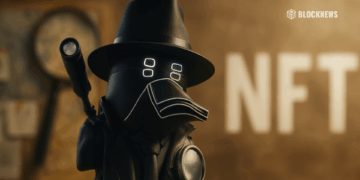Quentin Tarantino and MiraMax Films met in court over his sale of a series of Pulp Fiction NFTs.
Who owns the rights to an idea if it has gone from screenplay to cinema? When capitalizing on the concept in an emerging field, could there be a tussle over who owns what?
In the case of Pulp Fiction, the scriptwriter, as mentioned earlier, and the film production company landed in court to settle the dispute. The result is fascinating.
Pulp Fiction NFTs
At some point after NFTs became known as an emerging market, Quentin Tarantino, the acclaimed scriptwriter and director of Pulp Fiction, saw an opportunity to republish his ideas in another format. According to the contract signed with MiraMax years earlier, he retained his ownership over the script. Thus, he made a series of Pulp Fiction NFTs and tried to put them on the market.
When Miramax found out, they took him to court for breach of contract. The resulting court case, and dance of details, led to only one NFT being auctioned off for $1.1 million.
The Film Company Veto
Only the 1st of seven auctions took place. After that, MiraMax moved to block the remaining auctions until the dispute could be solved.
They argued they only found out through a third party and had a license over the 1994 film. In a statement by their legal team, Miramax asserted that he had not followed due diligence in contacting them to propose an adaptation of his script. When sent a cease and desist, he continued to market his NFTs.
The Judge and the Jury
After meeting in court, a settlement has now been reached. Tarantino was only able to sell one of his NFTs at his auction, and MiraMax tried to gain profit from the sale. However, a settlement was reached wherein both parties agreed on how to proceed in the future concerning each other’s rights over the product that Pulp Fiction is.
The future of artistic rights is written in the contract. As long as a contract clearly states that the scriptwriter retains ownership over the content and thus the right to reuse them in emerging markets, the owner of those rights can do so. If the contract is unclear, there may be an issue at some point in the future.
For emerging artists, let this case teach you to read the contract carefully before signing any future rights away. It’s too late when the future comes to try doing it then. Pulp Fiction was a complex case because both parties contributed equally to its success. Having that clause stating Tarantino had rights for future adaptation meant he did not lose the case, it was settled, and he retained ownership over the product he created. MiraMax controlled its copyright over the reproduction of the film and has now clarified its position for future endeavors with Tarantino and Pulp Fiction.














